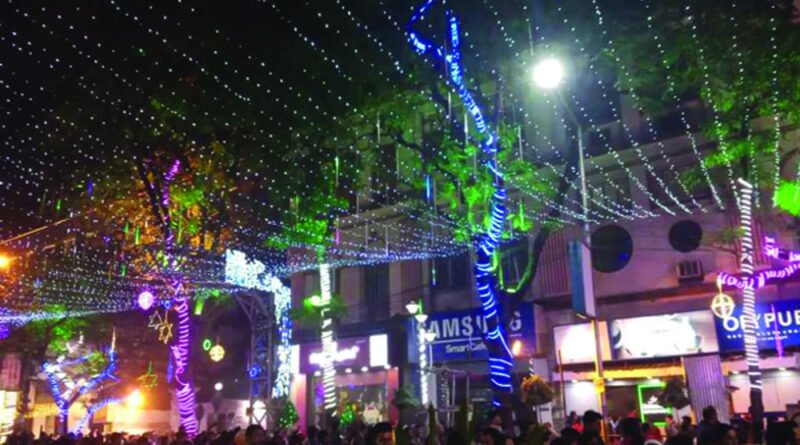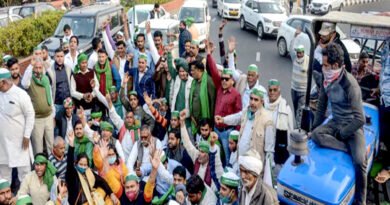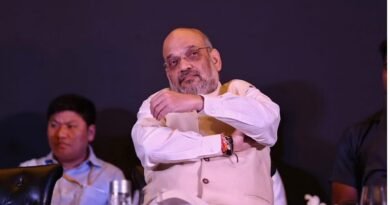How Congress tied down Bengal’s hands
Starting with the Congress, and later the Communists, political parties for decades didn’t allow West Bengal to realise its full potential
Nearly a century ago, Gopal Krishna Gokhale said: “What Bengal thinks today, India thinks tomorrow.” What a flattering compliment to a State where I grew up and spent 38 years. Even after Partition, West Bengal maintained its position among Indian provinces. Then began a pour-in of hapless refugees from East Bengal, Pakistan’s eastern wing. Chief Minister Bidhan Roy was a capable, honest and visionary leader but Jawaharlal Nehru did not allow him to handle the inflow of refugees.
Nehru wrote him letter after letter. To quote from them: “I have your letter of August 4 about the influx from East Bengal. I realise your difficulties and naturally we should do what we can to help you. But as I told you long ago, there is no reasonable solution to the problem if there is a large influx from East Bengal. That is why I think that it was a very wrong thing for some of the Hindu leaders of East Bengal to come to West Bengal.
“I have been quite certain right from the beginning that everything should be done to prevent Hindus in East Bengal from migrating to West Bengal. If that happened on a mass scale, it would be a disaster of the first magnitude. Running away is never a solution to a problem. If, as you suggest, things have gone too far already, then naturally we shall all do what we can, but I shudder at the prospect and the magnitude of the human misery that will come in its train. To the last, I shall try to check migration even if there is war.”
These are samples of double standards of the Nehru dynasty. Because when it came to Punjab, many more were coming in, many dead, in bleeding trains. At the time, rumours were afloat that Master Tara Singh, a Sikh leader, had threatened Nehru that if he came in the way of Punjabi refugees, the PM may be killed. Otherwise, why have one policy for Punjabis and another for Bengalis? Bengali Muslims were not leaving in significant numbers; here it was largely a one-way traffic.
That was the time when Hindu Bengalis referred to their Muslim brethren as becharas to be pitied and not disapproved of them even for voting for Partition almost 100 per cent. Their leader, very popular with the peasantry, Fazulul Haque, had proposed the Pakistan Resolution at Lahore on March 23, 1940, at the Muslim League session. It is true many Hindus discriminated against Muslims. A frequent complaint was that though they invited Muslims to wedding dinners, the latter were made to sit separately and had to wash their empty plates at the end of the meal.
One complaint I have personally heard from a member of the Bramachari family. The situation was that their village had become impossible to live in and the entire family had to flee to, say, Calcutta overnight. How to deal with his six-month-old sister (who may cry at night) was the question. After discussion, the family decided to strangle her. Thankfully, an elderly aunt got an idea, “let’s give her a little afeem so that she sleeps through the night”.
There was no spare farmland for the incoming peasants. So they were sent to Danda-Karanya in Madhya Pradesh, which had been cleared for them. The refugees had been used to a lot more fertile land and, therefore, most of them could not adjust to the part-stony forest land and they returned to West Bengal’s refugee camps. The result of overcrowding in Calcutta was unwelcome. Several streets, like Park Street which reminded one of London, became unkempt and ordinary. Yet Bidhan Roy, the medical physician-cum-Chief Minister, battled on to develop West Bengal. He built two small cities, Kalyani and Durgapur, to create space for new industries. His only fault was to be subservient to Nehru, but then he was not a grassroots politician. The number one physician in India, his private patient fee then was Rs 64, unheard of in Bombay and Madras of those days.
Roy was followed by Congressman Prafulla Sen, who was clean and honest. He lasted three years when in 1967, the general elections were called. The Congress was replaced by a United Front Government headed by Ajoy Mukharjee, a former Congressman often referred to as the Gandhi of Bengal. Once, fed up with the recalcitrance of Deputy CM Jyoti Basu and their Communist Ministers, Ajoy babu sat on a dharna. Asked by a journalist as to how he can protest against his own Ministry, his reply in Bengali was: “I am not mukho (chief) montri, nor murkho (foolish) montri but a thutto (broken arms) Jagannath.” The reply sounds very effective in Bengali. With the Communists dictating terms, West Bengal was hurtling down. Naxals added poison to the bitterness.
West Bengal, for 33 years or more, had to suffer the Communist policy of keeping people on the frontiers of poverty so that they do not rebel but, at the same time, do not get strong enough for organising a revolution. The only unusual step they took was to make peace with sharecroppers, who were partners with land owners. West Bengal shifted to three crops a year; the yields went up and the tillers were happier. West Bengal has become a farming-cum-trading State rather than just number one industrial State in 1947.
(The writer is a well-known columnist, an author and a former member of the Rajya Sabha. The views expressed are personal.)
Source: The Pioneer




